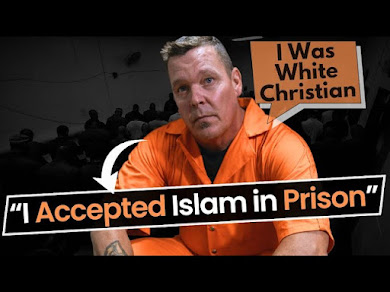
In a world often torn by violence, conflict, and dehumanization, it's crucial to revisit foundational moral principles that transcend time and place. One such principle is the sanctity of human life, and in Islam, this sanctity is held in the highest regard.
A Sacred Trust from God
Islam teaches that human life is a divine gift—a sacred trust from God (Allah). Every human being, regardless of race, religion, or status, is born with dignity and value.
The Qur’an declares:
“Whoever kills a soul unless for a soul or for corruption [done] in the land—it is as if he had slain mankind entirely. And whoever saves one—it is as if he had saved mankind entirely.”
(Qur’an 5:32)
This powerful verse underscores that taking an innocent life is a crime against all humanity, and saving a life is a service to all humankind.
Human Life Is Sacred—Not Just Muslim Life
The Qur'anic message is universal. It doesn’t say “a Muslim soul” or “a believer's soul”—it says “a soul.” Islamic ethics emphasize the inherent worth of every human, whether Muslim, Christian, Jewish, atheist, or otherwise.
Prophet Muhammad (peace be upon him) was once reported to have stood in respect when a Jewish funeral procession passed by. When asked why, he responded:
“Was he not a human soul?”
(Sahih Bukhari)
This reflects the deep spiritual recognition of life’s value, regardless of religion or identity.
Justice, Not Vengeance
Islam permits self-defense and the pursuit of justice, but strictly forbids aggression and the taking of innocent life. The Prophet Muhammad said:
“A Muslim is one from whose tongue and hand others are safe.”
(Sunan al-Nasa’i)
Acts of terrorism, suicide bombings, or attacks on civilians are not only morally reprehensible—they are in direct violation of Islamic teachings.
Protecting the Most Vulnerable
Islam commands the protection of women, children, the elderly, and the infirm—especially during times of conflict. The Prophet Muhammad laid down rules for warfare that forbade harm to non-combatants, destruction of homes, or poisoning of wells—centuries before modern laws of war were codified.
In his final sermon, the Prophet said:
“O people, your blood, your property, and your honor are sacred to one another as the sacredness of this day...”
This final address captured the heart of Islamic ethics: life is sacred, and mutual respect is obligatory.
A Universal Message
The Islamic principle of life’s sanctity is not just a theological idea—it’s a call to compassion, restraint, and justice. It demands that Muslims stand against injustice, whether committed by individuals, states, or even fellow Muslims.
In an age where human lives are too often reduced to numbers, may we remember that in Islam, every life is a universe.
Islam’s message is clear and uncompromising: human life is sacred. That sanctity applies to all people, at all times, in all places. It’s a value not only to be preached—but practiced.
.jpg)
.jpg)

.jpg)
.jpg)
.jpg)

.jpg)


.jpg)


.jpg)